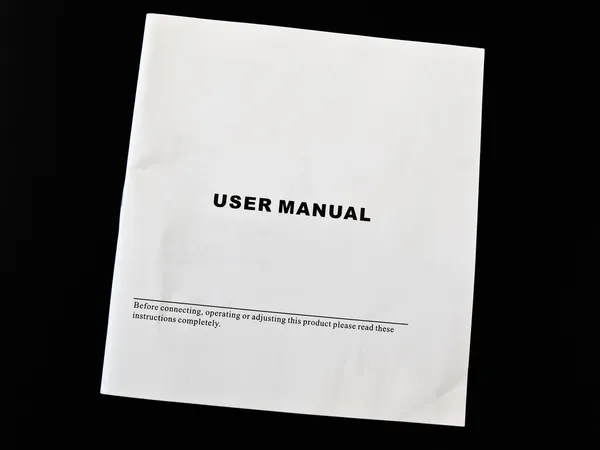

AssetTrackerTM®Installation Manual![]()
|
1. Don’t install the device on the white area of the trailer roof. |
|
|
|
|
Mounting install locations
Asset Tracker mounting locations guidelines for most dry van trailers:![]() Along the front edge of the rear edge of the roof (Green area) with the Rand McNally logo towards the outside as the arrow indicates above. This is an ideal mounting location. Fig. 1
Along the front edge of the rear edge of the roof (Green area) with the Rand McNally logo towards the outside as the arrow indicates above. This is an ideal mounting location. Fig. 1![]() Along the left edge or the right edge of the roof (Yellow area) with the Rand McNally logo towards the outside as the arrow indicates above. This is an acceptable mounting location but less than ideal for GPS. Fig. 2
Along the left edge or the right edge of the roof (Yellow area) with the Rand McNally logo towards the outside as the arrow indicates above. This is an acceptable mounting location but less than ideal for GPS. Fig. 2![]() Along the top edge of either side panel or front panel (Orange area) with the Rand McNally logo towards the sky as the arrow indicates above. This is an ideal mounting location for B100 but severely reduces the charging efficiency of S100.All other areas should be avoided as placement there degrades GPS performance or expose the device to potential damage
Along the top edge of either side panel or front panel (Orange area) with the Rand McNally logo towards the sky as the arrow indicates above. This is an ideal mounting location for B100 but severely reduces the charging efficiency of S100.All other areas should be avoided as placement there degrades GPS performance or expose the device to potential damage
|
Surface Preparation and Installation |
The following should be considered when mounting the Asset Tracker:
- The box contains provisions for screw mounting and adhesive mounting. It is highly advised to install the Asset Tracker using the screw mounting option as it is more reliable and ensures securing the device to the asset.
- Choose a location that has a flat and even surface. Avoid mounting the device on glue or adhesive residues used to join/seal the roofing panel material to the frame.
- Choose a location that provides a thick structural element on the trailer, such as roof bows, top side rails, rear frame, or top front nose rail. This will provide adequate depth for the provided fasteners.
- Avoid using the self-drilling screws with thin gauge roof panel(s) as it doesn’t provide enough thread engagement for the fasteners.
- Fiberglass roof panels are a much less desirable surface to attach the self-drilling screws. Avoid driving screws in them as they tend to flake and will not hold the screws over time.
- Place the washer between the screw head and the mounting flange. Using the proper drive bit, slowly drive the screw into the metal surface. Provided screws are #6-20 x ¾” self-tapping galvanized steel screws.
- If you can’t use screw mounting and you have to use double adhesive tape mounting, please ensure the below preparation steps.
- At room temperature, the tape is 50% cured after 20 minutes, 90% after 24 hours, 100% after 72 hours. The minimum temperature for installation is 65°F until 100% cured. If you cannot meet this criterion, please do not use adhesive tape.
- Choose a flat even surface that is smooth and non-porous such as a bare aluminum or steel surface. If the surface is painted, make sure the paint is intact and not deteriorated or flaking off.
- Thoroughly clean the surface with a mixture of isopropyl alcohol (IPA) and water (50% to 70% IPA). Wipe the surface dry and make sure it’s free of oil, grease, dust, or debris. NOTE: if the surface is not thoroughly clean or has debris on it, the adhesive tape becomes ineffective.
- Apply the tape to the surface, remove the backing tape, then press and hold the Asset Tracker onto the tape, keep applying pressure for 30 seconds.
Asset Tracker Specifications
| AssetTracker B100™ | AssetTracker S100™ |
| Dimensions:3.96″ L x 1.33″ H x 2.33″ W | Dimensions:3.96″ L x 1.33″ H x 2.33″ W |
| Weight:5.11 oz. | Weight:6.0 oz. |
| Operating temperature:-40ºC to 85 ºC (-40ºF to 185ºF) | Operating temperature:-20ºC to 60ºC (-4ºF to 149ºF) |
| Solar charging:• Needs 24 hours of sunlight to be fully charged• Tracker can operate for 90 days without re-charging |
Installation by customer required. Rand McNally is not responsible for any damage or injury caused by installation.©2020 Rand McNally. Rand McNally, the globe logo,AssetTracker S100 and AssetTracker B100 aretrademarks of RM Acquisition, LLC d/b/a/ Rand McNally.
[xyz-ips snippet=”download-snippet”]


